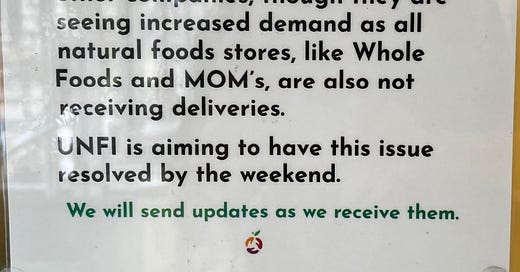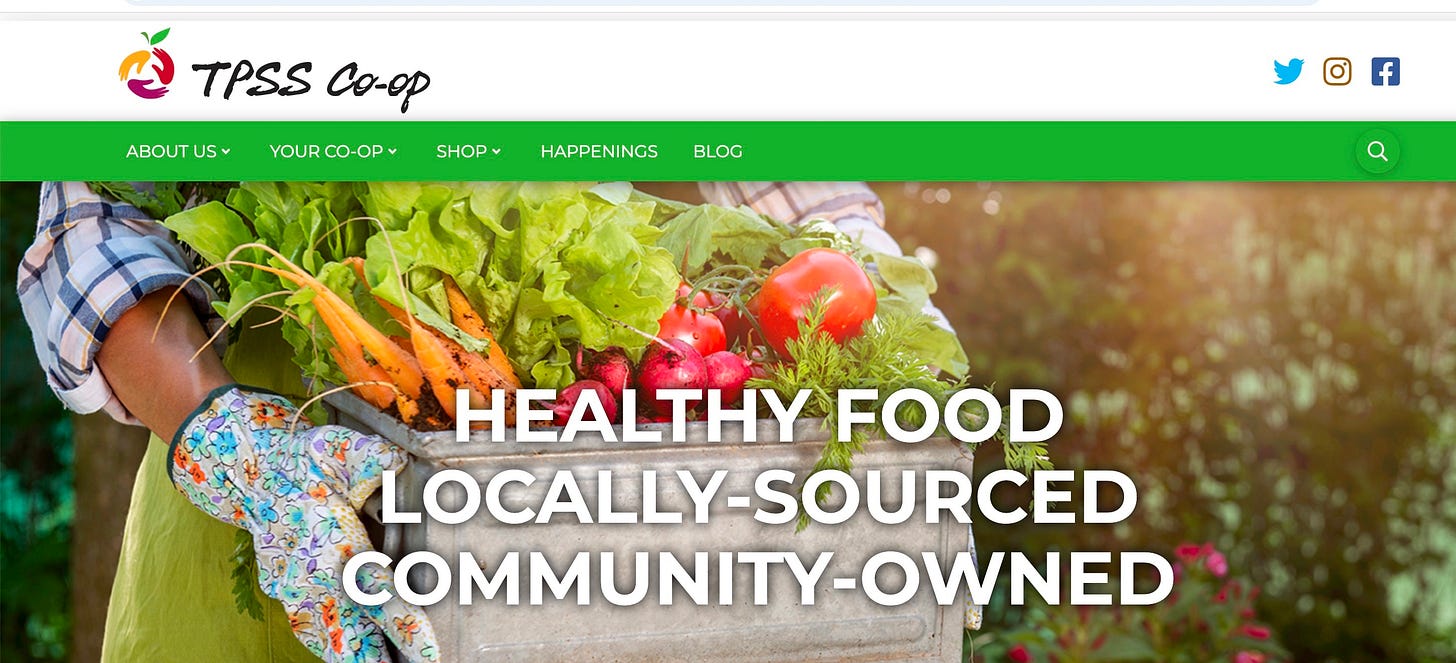TPSS Member #320 and the UNFI Cyberattack
What the Vegetable Aisle Taught Me About Concentrated Economic Power
Empty Shelves at The Co-op
I’m member number 320 at the Takoma Park Silver Spring Co-op, located across from the Takoma Junction Firehouse at 201 Ethan Allen Avenue in Takoma Park, Maryland.
TPSS has served our community since 1981, making this its 44th year. I joined early—around year two—when the idea of a member-owned grocery store still felt radical and experimental.
Earlier this month—around June 6—I saw signs posted at the store’s entrance. It said some items were out of stock due to supply issues.
It seemed routine. These things happen.
Then, yesterday (June 13, 2025), an email from TPSS General Manager Mike Houston arrived. Suddenly, the missing yogurt became a message about something much larger.
The Real Story Behind the Empty Shelves
Mike explained that UNFI, one of our leading national suppliers, had suffered a major cyberattack.
Getting deliveries had been difficult since June 6, and there had been no deliveries for a week by the time of his email.
Yogurt shelves were thinning. Ice cream was nearly gone. Bottled water supply had shrunk.
UNFI’s ordering systems had a huge chunk of the national food distribution network.
They had gone dark, and TPSS wasn’t the only store affected. Whole Foods, Cub, and others also faced shortages.
What I thought was a local glitch was part of a nationwide breach.
UNFI: A Giant with Fragile Foundations
UNFI didn’t get big by accident. Over time, it consolidated smaller competitors, centralized operations, and locked in large contracts, most notably with Whole Foods. That growth strategy made it powerful, but also brittle.
Here’s what the numbers reveal:
$30.98 billion in revenue (FY 2024)
$112 million net loss
$3.7 billion in debt
17% stock drop after the June 2025 cyberattack
Nearly $300 million in lost market value
For grocery chains, it made sense: put all your eggs in one basket.
Until the basket breaks.
Private Equity State Capitalism
Under Private Equity State Capitalism (PESC), corporate buyouts shift the governance structure:
- Eliminate redundancy
- Centralize decision-making
- Prioritize extraction
- Externalize all risk
We explore PESC in our book. How Private Equity State Capitalism Consumes Democracy: From Extraction to Resistance—Reclaiming Power In the Age of Authoritarian Rule by James E. Paige, Jr. and Jerome S. Paige . eBook Paperback
UNFI wasn’t just a vendor. It had become a single point of failure.
And it failed.
The Co-op as Resistance
TPSS didn’t collapse. It adapted.
Mike’s update wasn’t a crisis apology but a quiet show of strength.
TPSS had already built relationships with five other wholesalers and hundreds of small, direct suppliers.
That’s not just a backup plan. That’s a different philosophy entirely.
Where others chase efficiency, TPSS builds resilience.
Where others seek profit, TPSS centers accountability.
Where others trust monopolies, TPSS trusts networks.
TPSS provides an example of resistance to PESC in everyday life.
Not a protest. Not a policy.
Just shelves that stay stocked when the system breaks.
From Aisle to Awareness
Until yesterday, I thought I was witnessing a glitch.
But Mike’s email reframed it.
I wasn’t just buying groceries—I was standing inside a case study about power, dependency, and alternatives.
TPSS wasn’t just surviving the breach.
It was showing us another way to live.
Also read.
Jerome S. Paige, The Meditativist, is a business, economic, and organizational development consultant.




